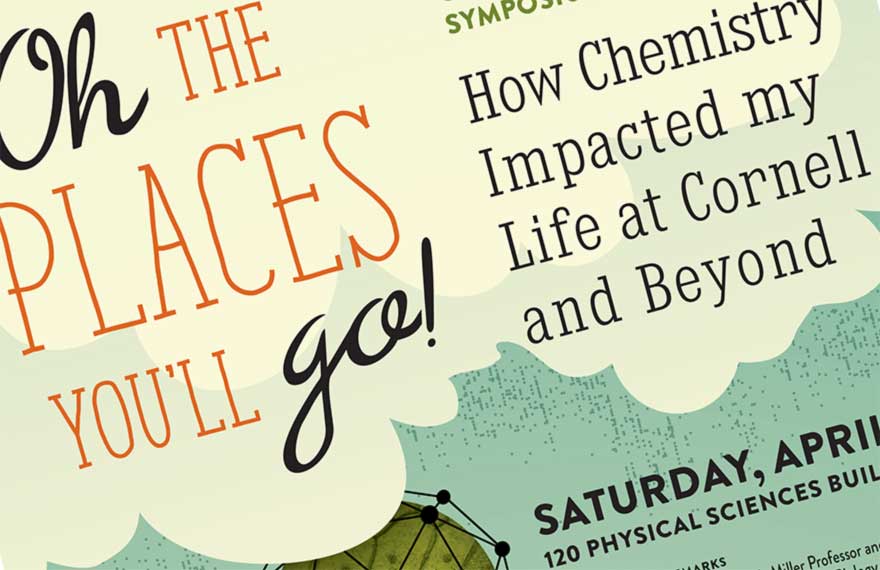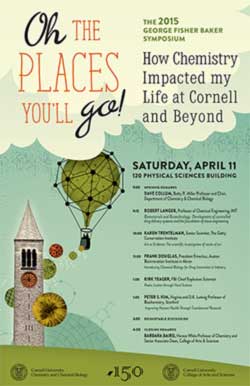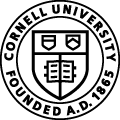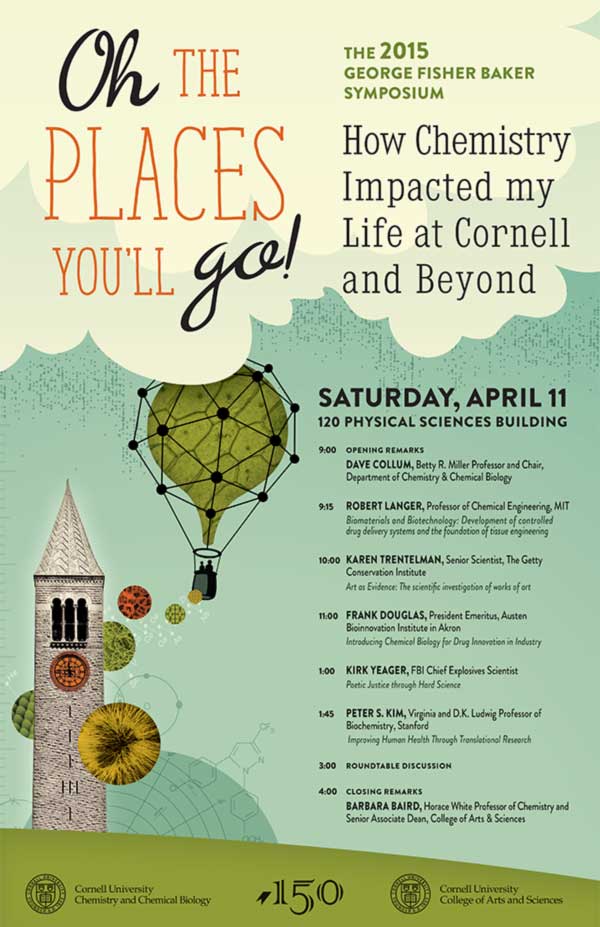
The Places You Will Go: How Chemistry Impacted my Life – Cornell and Beyond
Department of Chemistry symposium explored the various career pathways alumni have taken to change the world.

Cornell and Beyond
Alumni from Cornell's chemistry department returned to campus April 11 for an all-day event sharing stories of their careers in chemistry.
"The Places You Will Go: How Chemistry Impacted my Life – Cornell and Beyond," featured five alums with careers from medicine to forensic science to art preservation.
"Cornellians graduate and change the world," said Dave Collum, the Betty R. Miller Professor of Chemistry and chair of the Department of Chemistry and Chemical Biology. "The Department's sesquicentennial symposium celebrates five former chemistry students who did so in profound and profoundly interesting ways."
The event, which began with opening remarks at 9 a.m., was this year's George Fisher Baker Lecture, an endowed lectureship that began in 1926 and has featured multiple Nobel Prize winners throughout the years.
Speakers included:

- Frank Douglas, PhD '73, MD '77, president emeritus for the Austen BioInnovation Institute Akron (ABIA), as well as CEO for The VAX Genetics Vaccine Co. US. Prior to joining ABIA, he was the professor of the practice in the MIT Sloan School of Management, the MIT departments of chemistry and biological engineering and The Harvard-MIT Division of Health Sciences and Technology. He was also founder and first executive director of the MIT Center for Biomedical Innovation and executive vice president for Aventis AG, with global responsibilities for research, development, regulatory and marketing support.
- Peter Kim '79, the Virginia and D.K. Ludwig Professor of Biochemistry, a member of Stanford ChEM-H, a new interdisciplinary institute at Stanford University and former president of Merck Research Laboratories. Kim is a structural biologist known for discovering how proteins cause viral membranes to fuse with cells. He has also designed novel compounds that stop membrane fusion by the AIDS virus, thereby preventing it from infecting cells and pioneered efforts to develop an HIV vaccine based on similar principles.
- Robert Langer '70, Institute Professor at MIT, the highest honor that can be awarded to a faculty member there. Langer ranks as one of the most published and cited engineers of all time, with 1,080 issued and pending patents worldwide. His patents have been licensed or sublicensed to more than 250 companies. He served as chairman of the FDA's Science Board (its highest advisory board) from 1999-2002.
- Karen Trentelman PhD '89, senior scientist and leader of the Technical Studies research group at the Getty Conservation Institute (GCI). Current areas of research include: the materials and firing conditions used in the production of ancient Athenian pottery; revealing hidden features in paintings and manuscripts using non-invasive spectroscopic and imaging technologies; and fostering the integration of imaging and analytical data. Trentelman is also active in the education and training of scientists and conservators in the application of non-invasive analytical techniques to the study of works of art.
- Kirk Yeager PhD '93, has served as a chemist, scientist and forensic examiner with the FBI since 2000. He initially worked as a physical scientist/forensic examiner for the FBI Laboratory's Explosive Unit and was later promoted to the role of senior scientist in that same unit. Currently, he serves as the chief explosives scientist in the FBI Laboratory's Terrorist Explosive Device Analytical Center. Throughout his career with the FBI, he has conducted research into the chemistry and physical effects of explosives and explosive devices.
The day ended with a 3 p.m. roundtable featuring all five speakers.


